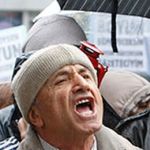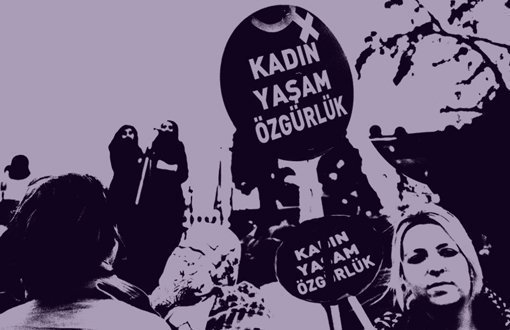
A recent report on press freedom conditions in Turkey prepared by the Committee to Protect Journalists (CPJ) has not been welcome by Turkey's government; however, the committee had already predicted this, Kati Marton, journalist/writer and one of the directors of the CPJ, said in a meeting in Istanbul.
CPJ Senior European Adviser Jean-Paul Marthoz, a Belgian journalist and human rights activist, also attended the meeting on the committee's correspondence with the Ministry of Justice regarding the report, titled Turkey's Press Freedom Crisis.
"If you are not in favor of the views of some journalists, you just would not buy that newspaper. However, governments have no right to imprison journalists when they do not appreciate their work. At least in democracies," Marton said.
Marton was born in Hungary and when she was 6, her journalist parents were imprisoned in Budapest with the accusation of espionage, a common label of the period. "This was long before, during the Soviet era. However, Turkey is a democracy and there is no reason for the country to be afraid of press freedom" said Marton, with whom bianet made a short interview:
How long have you been monitoring the problems in Turkey's media and the restrictions on freedom of expression?
Around 20 years... Frankly, I was thinking that a better level would have been achieved by now. Turkey has progressed in many fields, but freedom of press and expression is not among them. Still, I believe authorities will take positive steps regarding this.
With which country do you think we can compare Turkey? For some reason, Turkey is compared to Eritrea by Turkey's press.
Eritrea? Absolutely not. Turkey is a democracy, which, I think, needs to be a part of the European Union. But when it comes to press freedom, there are contradictions. The government has self-confidence problems in regards to people's expressing different views. This should change if Turkey aims to develop. Unless there is free press, and no one can write about what is really happenning, corruption emerges. A country without free press cannot achieve economic development, either, which would affect society profoundly in the long term. Imprisoning and silencing journalists is a very short term solution for those who do not want the truth to be revealed.
You have told that you have been visiting Turkey for 20 years. How do you evaluate the changes in press freedom? Do you think there is progress or regress?
I think there is a halt in this field. There were steps on the right directions for a while, but now it has started to regress. Actually this is the very reason why we have released this report now. It is kind of a notice to Turkey that the entire world is watching it. While Turkey has taken many important steps in different fields, the issue of press freedom is like a black mark.
How does the CPJ aim to contribute into press freedom in Turkey?
We contribute through revealing the violations in the international arena. The report has made tremendous impact worldwide. Its publication is also very timely considering Turkey's new constitution efforts. I can say that we are hopeful about Turkey.
The government's reaction to the report was predictable. But what do you think about the reactions of journalists and columnists from Turkey?
I find it really strange. We are talking about our colleagues in jail. The journalists that criticize the report should toughen up a little bit. As a journalist, if the authorities like you, there is a problem there. Our job is not to please powerful people, but to tell the truth. And we need to be careful while fulfilling this. We do not make big statements; we ground what we say on concrete facts. The only things journalists possess are their reputation. If we lose this, we lose everything.
Today, we have learned that all journalists convicted and prisoned within the scope of the Kurdistan Communities Union (KCK) have launched hunger strike. Does the CPJ have any plans on this issue?
This is really worrisome. We urgel the government to come to an humane understanding on the matter. There is a compromise waiting waiting to be hammered out. But both parties should be willing for this. As a matter of fact, these journalists should not be in prison at all. Turkey has many problems in security, but imprisoning journalists will not make the country any safer. It would only be considered as an indication of weakness.
"Report reduced to figures"

A CPJ team attended a meeting Tuesday at the Ministry of Justice. Stating that the minister's main concern is that the CPJ did not share the findings with the ministry prior to the release of the report, Marton said that the findings had been confirmed by at least two sources, which is the basic principle of journalism.
Another concern voiced by the ministry is the "terror links" of some of the journalists mentioned in the report, Marton said, adding, "We object to this. Covering news about a terrorist organization is different than being a member of the organization. None of the journalists in our report conduct a terrorist activity."
The debates about the report have been reduced to figures, Marthoz said. "The figures constitute a part of the report. However, the report actually reveals the situation concerning press freedom." The CPJ could not come to terms with the justice minister on the reasons why the journalists are in prison, Marthoz noted. However, the two bodies have agreed on the necessity for reforms in legal system, he said, adding that the ministry was planning to propose a reform package at the Parliament before the end of the year. (ÇT)







.jpg)



